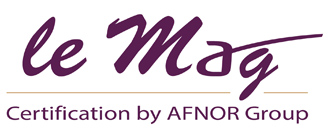Social responsibility, which is now documented in the ISO 26000 standard, allows companies deploying a CSR strategy to raise their performance by 13%. Such are the findings of a France Stratégie study.
France Stratégie, an organization under the supervision of the French Prime Minister and featuring a “CSR platform”, published a study on 7 January that examines the correlation between social responsibility and the economic performance of companies that engage with a CSR approach, which is now formalized in voluntary standard ISO 26000.
The main lesson learned is that investing in CSR pays dividends: companies with a CSR strategy see improved performance of approximately 13% compared to companies without (all things considered), especially when a CSR approach is not a forced decision, but based on a voluntary initiative. “Respecting the interests of other stakeholders [editor: one of the principles inherent in social responsibility] can be more than just a statement of the company’s principles and instead represent a real and tangible challenge for organizations,” explain the study’s authors*.
This study is the only one of its kind for two reasons. On the one hand, it features a very wide sample group of companies – approximately 8,500 – including SMEs with at least 10 employees. On the other, it takes into consideration (which is rarely the case) several aspects of CSR, including the environment, ethics, human resources, relationships with customers and relationships with suppliers. The study is not based solely on whether the organization has achieved some or other accolade or hallmark. Finally, it uses the term “economic performance” to encompass profit per employee, EBITDA and value added per employee.
Engaging SMEs
Despite the many initiatives taken, the study also emphasizes that very few French companies have engaged with CSR and reveals the presence of strong disparities in terms of size and territory. CSR is still seen as a policy for major corporations and not small businesses. “Hardly more than a quarter of French companies with over nine employees claim to have really adopted a CSR approach. Actually, 60.4% even claimed to be unaware of the concept of CSR,” the study reveals.
To encourage this target group to embrace CSR, France Stratégie provides several recommendations, such as “simplifying CSR certification and labelling for microbusinesses”. AFNOR Certification offers AFAQ 26000, a service that assesses companies of all sizes based on their inclusion of CSR principles. Sector-specific approaches have been developed, including for landscaping firms and the joint-trade organization for Pays d’Oc wines. Finally, AFNOR Certification also offers CSR SCORE, a quick and easy online assessment for companies taking their first steps with CSR.
“This study confirms that our services give meaning, promote best practices and improve companies’ economic performance,” explains Olivier Graffin, Sustainable Development and CSR Coordinator at the AFNOR Group. The same applies to SMEs, as illustrated by the example of Frayssinet (83 employees), which specializes in organic soil fertilizers and natural plant stimulants. “The AFAQ 26000 approach (…) establishes our reputation as an ethical company in favour of protecting the ecosystem and helps us develop new buoyant markets,” advises one of its directors.
* Salima Benhamou and Marc-Arthur Diaye, in liaison with Patricia Crifo
[button content=”Discover AFNOR Certification’s AFAQ 26000 assessment service” color=”yellow” text=”black” url=”http://www.afnor.org/en/certification/dd001″ openin=”_blank”]
[button content=”View the France Stratégie survey (in French)” color=”yellow” text=”black” url=”http://www.strategie.gouv.fr/sites/strategie.gouv.fr/files/atoms/files/fs_etude_rse_finale.pdf” openin=”_blank”]





